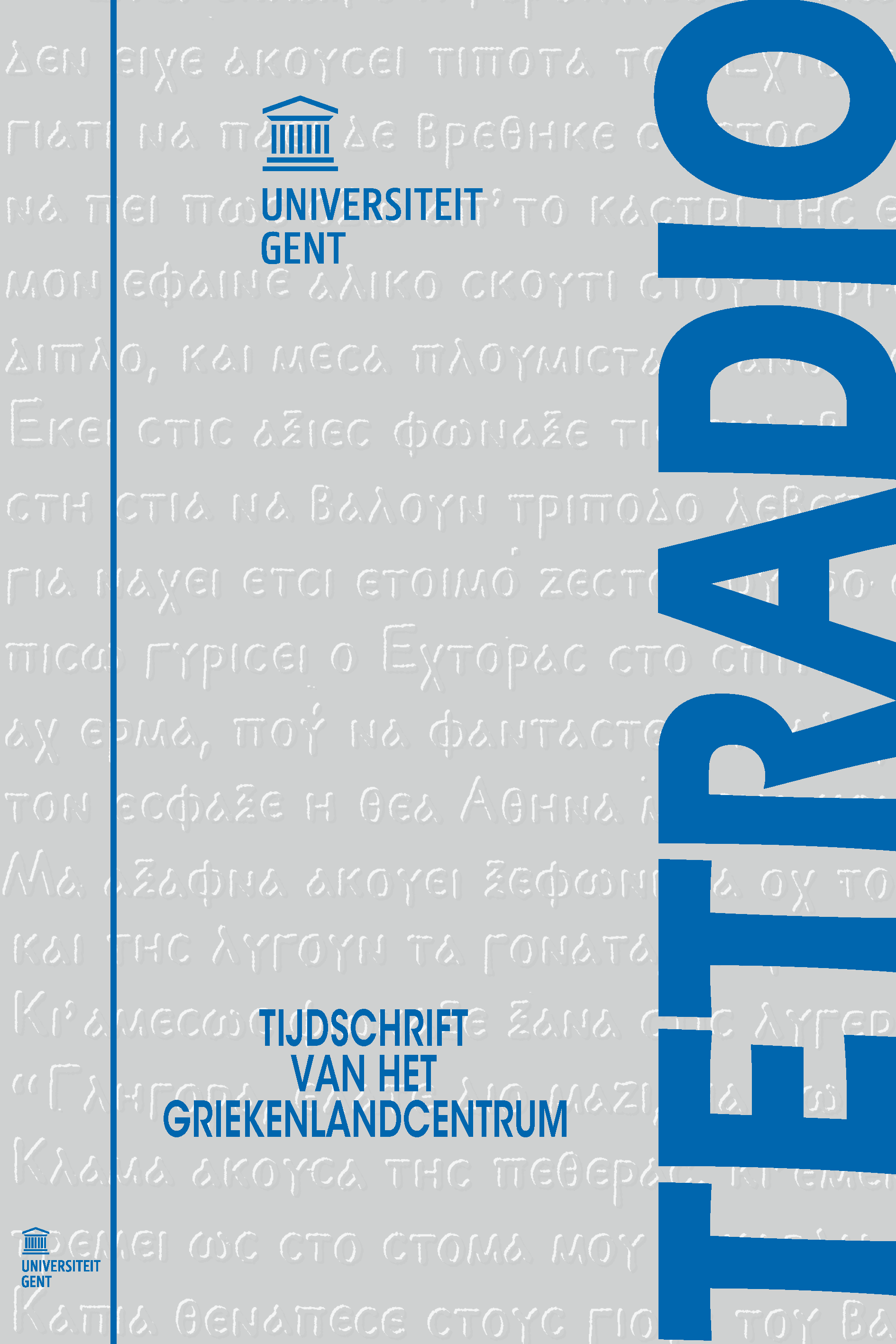Grieken op de Balkan: wie is wat?
- Raymond Detrez
Abstract
In Ottoman times the terms “Greek” and “Romaios” primarily referred to ethnic Greeks, but could also have other meanings. In other Balkan languages “Greek” and “Romaios” were used as a synonym for “Orthodox Christian”. The term Orthodox Christians of whatever ethnic group used most frequently (as an answer to the question “What are you?”) was “Christian” (Χριστιανός, християнин). Obviously, ethnic belonging was perceived as less important. However, in the other Balkan languages “Greek” and “Romaios” could also mean “city dweller” and “rich merchant”, unlike Bulgarian and Serf, which referred to poor peasants. In the early 19th century in the Thracian city of Plovdiv / Philippoupolis a middle class of Graecized Bulgarians emerged, who were referred to as Goudilas. They spoke a Bulgarian-Greek mixed language which they themselves apparently considered to be a suitable expression of their particular social identity. As it did not compromise their fundamental orthodox Christian identity, their Graecization easily take place. The Goudilas are a striking example of how in the Balkans prior to the era of nationalism ethnic distinctions played a minor role.
How to Cite:
Detrez, R., (2023) “Grieken op de Balkan: wie is wat?”, Tetradio 32(1): 2, 27–46. doi: https://doi.org/10.21825/tetradio.91984
Downloads:
Download PDF
View PDF
